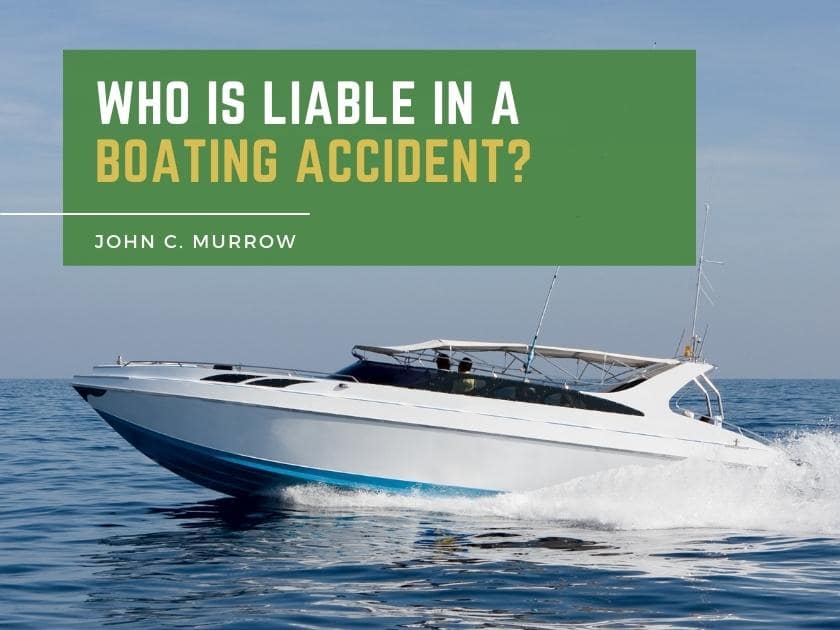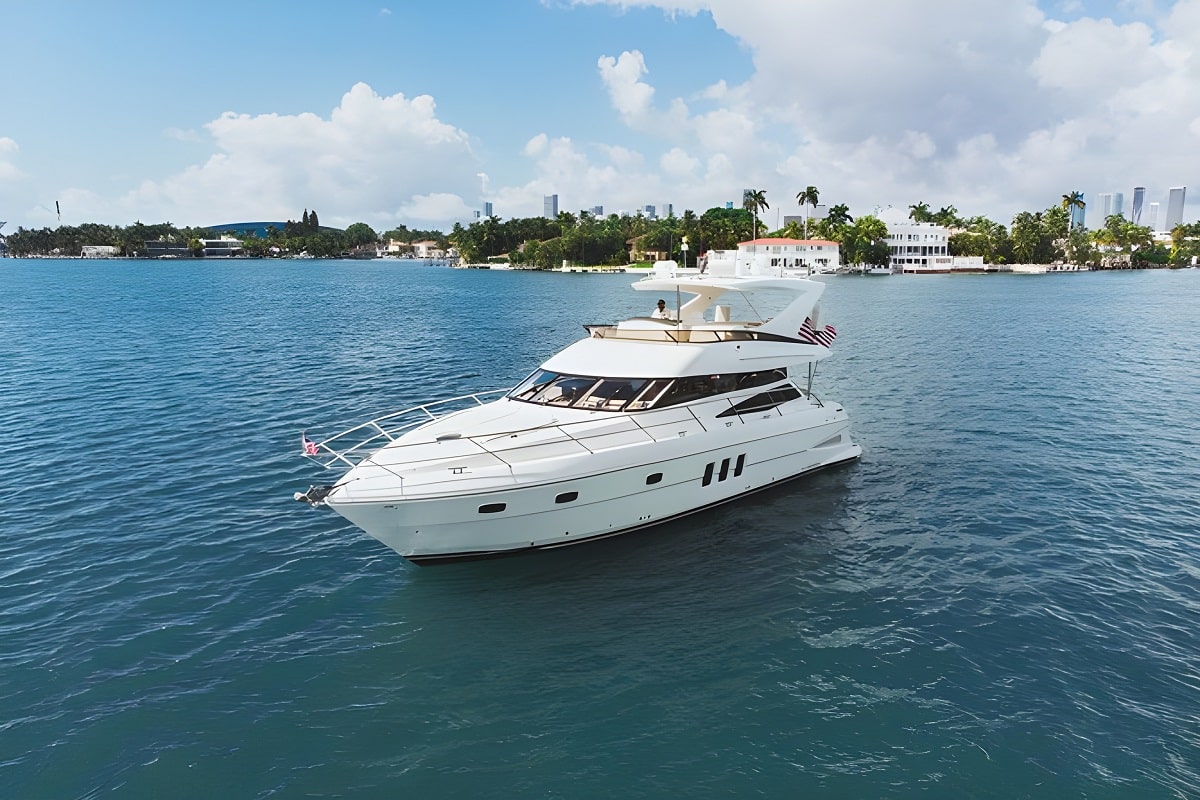Florida is the top boating state in the country. But with more than a million registered recreational vessels in the state, the number of boating accidents is also high. If you've been injured in such an incident, finding out or proving who is liable in a boating accident will be one of your concerns. In this article, we're going to discuss the factors that affect liability, how it is determined in a boating accident, and where to find a Tampa boating accident lawyer.
Parties That Are Commonly Liable In a Boating Accident
Boat Operators
Boat operators are the ones most commonly held liable in a boating accident. This is because they're the ones driving the vessel at the time and are responsible for making sure that all safety protocols are in place. Not to mention that the top cause of boating accidents is operators not paying attention, as well as boating under the influence and speeding.
Boat Owners
The boat owner has a responsibility to ensure that their vessel is in safe working condition before heading out. This means that checkups and maintenance work should be done regularly and properly. Failing with the boat upkeep might cause machines to fail and put the boat at a higher risk for accidents.
Additionally, knowingly loaning the boat to an unqualified individual could also make boat owners liable in case of an accident.
Boat Manufacturer
If the boat accident was caused by a defect in the boat, then the boat manufacturer might be held responsible for any injuries. Examples of boat manufacturing defects are malfunctioning equipment, fuel leaks, and loss of steering control.
Boat Rental Company
Waivers are often involved when renting a boat. However, if a boating accident happens, the rental company might still be held liable for any damages. Examples of situations where the rental company might owe liability are when renting the boat to ineligible patrons or renting out the vessel when it's unsafe to operate.
Boat Passenger
Lastly, a negligent passenger might be held liable for the injuries of other passengers. Examples of reckless behavior are pushing, distracting the boat's operator, or intentionally causing the vessel to crash.
Florida Boating Laws and Rules That Affect Liability
As a Florida boat operator, you have to obey the rules that regulate your boat's registration and operation. These rules are meant to improve the safety of the vessel and prevent a boating accident from occurring. Breaking the boating laws and rules means that you'll have to pay fines and be liable if anyone gets injured in an accident.
Navigation & Right of Way
Knowing boating rules, including navigation and right of way laws, can help the operator know what to do in different situations. Unfortunately, not all boaters are familiar with these rules. And this unfamiliarity might lead to confusion or accidents.
Generally, the Right of Way is given to the stand-on vessel or the vessel that needs to maintain the same course and speed. On the other hand, the give-way vessel is required to take early actions to stay out of the way of the stand-on vessel.
But regardless of who has the right of way, a boat operator is still expected to do whatever it takes to avoid a collision. This is important especially when not all boaters are familiar with the navigation rules or because of instances where both parties are the stand-on vessels.
Drugs And Alcohol
Under Florida law, it is illegal to operate a vessel while under the influence of drugs or alcohol. Boating under the influence can get you fined and you may possibly face 6 months or more jail time for the first and second offenses. But on the third one, or if your actions injured someone in a boating accident, then it will be considered a third-degree felony. The consequences would then be 5 to 10 years in prison plus a fine of $5,000.
Operating in a Safe and Reasonable Manner
As a boat operator, it is your responsibility to drive the boat in a sensible manner as well as provide reasonable safety for the passengers and other water users. Some examples of operating in a safe and reasonable manner are:
- Ensuring that an approved life jacket is available for everyone on board
- Operating at a speed and fashion that is appropriate for the conditions
- Getting familiar with the navigation rules and waterway markers
- Staying at a safe distance from other boaters
How Is Liability Determined in a Florida Boat Accident?
Liability in a boating accident is determined by negligence. In tort law, negligence is defined as the failure to exercise appropriate care expected of a normally prudent person under the same situation. Additionally, this failure resulted in injuring or damaging another person. This suggests that even if you got injured in an accident this doesn't automatically mean someone was negligent. An example of operator negligence is driving the vessel too fast, causing a passenger to fall off and get injured.
Establishing The Facts to Prove Negligence
There are four elements a boating accident victim needs to prove in a negligence claim.
- Duty of care: Proving that a person or company has a legal responsibility to maintain the health, safety, and well-being of another person or company.
- Breach of duty: Proving that an individual failed to fulfill their duty of care.
- Causation: Establishing a link between the defendant's negligence and the plaintiff's injuries.
- Damages: Proving that the damages the victim suffered are caused by the injuries incurred from the negligent accident.
Factors That Impact Liability in Boating Accidents
To fully understand how boating accident claims work, here are some of the most common factors or causes that an operator needs to watch out for:
Collision With Another Boat
When it comes to collisions between two vessels, both operators can be partially at fault. Any injured passengers of both vessels can file a personal injury claim against the operators.
If one of the operators was injured, the injured person has the legal right to bring a claim against the other operator. However, some states recognize comparative negligence. This means that the compensation received by the injured party might be lessened proportionately based on their contribution to the accident.
Hitting Another Boat’s Wake
Generally, all boat operators are expected to be always on the lookout for anything that might cause harm to the boat and its passengers. So determining liability when a boat hit another vessel's wake will depend on multiple factors, including:
- Size of the wake
- Boat's speed
- Visibility
- Harsh weather conditions
- Boat traffic
- Type of vessel
On the other hand, the operator of the boat that created the wake might also be held responsible depending on the location. "No wake" zones are sometimes put in place to keep a marina protected, when waterways are congested, or when sight lines are limited.
Collision with an Object or Rock
There are instances when even with great weather and visibility, the boat can still hit a submerged object or rock. An operator's liability for hitting fixed objects will depend on the situation. For example, if the operator was driving cautiously and was using GPS or had nautical charts for the area, and then hit a fixed object that could not have been reasonably foreseen, then he might not be found to be negligent. However, if the operator was speeding along, without using charts, and then runs into a rock, he might be found to be negligent.
What Compensation Can a Victim of Negligence in a Boat Accident Expect to Receive?
A person injured in a boating accident can be awarded either special or general compensatory damages.
Special damages are awarded to compensate for the claimant's quantifiable monetary losses due to the injuries caused by the defendant's negligence. This includes:
- Medical expenses
- Transportation costs
- Lost earnings
- Loss of earning capacity
- Repair or replacement for a damaged property
General damages are awarded for losses that cannot be easily measured, such as:
- Physical pain and suffering
- Mental pain and anguish
- Loss of companionship
- Lower quality of life
- Physical impairment
The Importance of Hiring The Right Attorney
Working with an experienced boating accident attorney as soon as possible can be a great help for you. An attorney can offer legal advice so that you can make better decisions, gather evidence to make a strong claim, assist with the legal process, and help with the settlement negotiation.
However, boating accidents involve maritime laws that a general lawyer might not be familiar with. So if you or a loved one were injured in a boating accident, it's important to hire the right attorney for your claim.
Atty. John C. Murrow is a Tampa Bay personal injury lawyer. John has the necessary skills and experience with boating accident claims to help you get the maximum compensation you deserve. Call John today at (813) 999 4950 for a free consultation.


